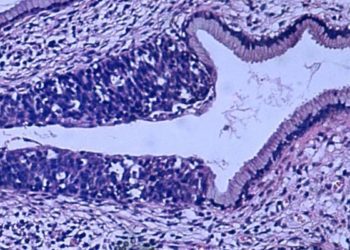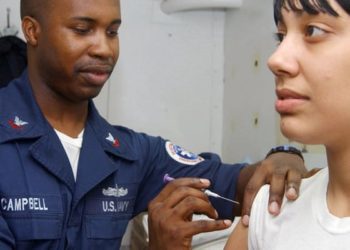Cervical cancer screening practices less cost-effective than suggested guidelines
1. From a cost-effectiveness analysis, current screening practices failed to outperform every other screening scenario in terms of health benefits and costs.
2. The major factors associated with improvement were routine cytologic screening every 3 years and perfect compliance with referrals for colposcopy/biopsy.
Evidence Rating Level: 2 (Good)
Study Rundown: Cervical cancer causes death in over 4000 women per year in the United States, making it a significant public health concern. Although several screening and treatment strategies have helped reduce the number of women affected annually, the best implementation of these strategies is largely unknown. In the current study, a model-based cost-effectiveness analysis was conducted to compare the current screening practices in New Mexico to the recommended, guideline-based screening practices. The primary outcomes were health benefits (i.e. decrease in lifetime cervical cancer risk and increase in QALYs—quality-adjusted life years) and lifetime costs. From this, screening practices were inefficient compared to guideline-based practices. Contributors to inefficiency included variable screening frequency, inappropriate HPV triage testing and poor compliance with diagnostic and treatment referrals. The results suggest that health and monetary outcomes can be vastly improved by both implementing cytologic screening every 3 years for all eligible women and ensuring perfect compliance with diagnostic follow-up visits. While this study has potentially limited generalizability due to use of the New Mexico HPV Pap Registry (NMHPVPR) data from a short time period (2008-2011), its use of population-based screening data suggests achievable improvements to current U.S. cervical cancer screening practices.
Click to read the study published today in the Annals of Internal Medicine
In-Depth [cost-effectiveness analysis]: The authors used data from the NMHPVPR to simulate current cervical cancer screening practices and compared them to recommended screening practices per USPSTF and ASCCP guidelines. These guidelines include cytology every 3 years for women aged 21-65 years and follow-up for diagnosis or treatment, if necessary. Based on the analysis, current screening practices reduced lifetime cancer incidence by 48.5% and mortality by 58.4% compared to no screening. Notably, guideline-based screening practices reduced incidence by 80.9% and mortality by 86.7%, both significantly greater than current practices. Improving current practices by adding both cytologic screening every 3 years and perfect compliance with diagnostic referral led to a 72.2% reduction in incidence and an 82.0% reduction in mortality. These changes were also financially sound, with incremental net monetary benefits of $753/QALY (when $50,000/QALY was the cutoff) and $1645/QALY (when $100,000/QALY was the cutoff).
Image: PD
©2015 2 Minute Medicine, Inc. All rights reserved. No works may be reproduced without expressed written consent from 2 Minute Medicine, Inc. Inquire about licensing here. No article should be construed as medical advice and is not intended as such by the authors or by 2 Minute Medicine, Inc.







